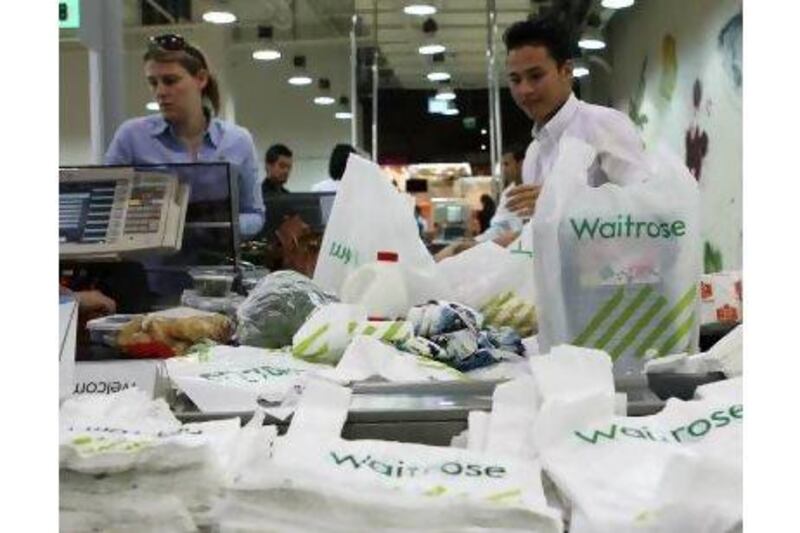Child-protection regulation a welcome initiative
I'd like to congratulate all those involved in fast-tracking Wadeema's Law (New law for intervention to prevent child abuse, January 13).
I sincerely hope that this law succeeds in ensuring that no other child ever has to suffer the fate of poor Wadeema. I also hope that her surviving sister, Mira, is being well looked after, with emotional and financial support, and will one day be able to make sense of this tragedy.
Without prejudging any court cases, it should go without saying that those who are found guilty of abusing children should suffer the severest penalties available under the nation's laws.
The UAE relies on its children to build its future. We all owe them respect, love and protection.
J Firth, Dubai
Some groceries past use-by date
By the look of the grocery stores featured in your article, 'They were like family, we're very sad' (January 13), some of them should have been closed a long time ago.
It is always the same; a deadline is announced but people don't do anything about it.
I'm glad our local grocery was refurbished in time, even though it was already pretty clean.
L O'Farrell, Abu Dhabi
Private schools face challenges
I am writing to thank you for Faisal Al Yafai's opinion article The ABCs of innovative policy to fund expatriate education (January 8).
I am the chief executive officer of SSAT Middle East, an educational consultancy, training and management company involved with supporting owners in operating new schools in the emirate of Abu Dhabi.
I think it was very insightful to highlight a range of solutions to the difficulties of supplying new schools to an ever-growing expatriate market.
The issue of funding private schools catering to the low- to middle-income range is always a challenge, as these schools need to offer an ever-increasing array of high quality educational facilities while balancing their budgets.
Perhaps larger commercial organisations could partner with schools in order to support fee increases by offering subsidised resources or gratuities. This would mean that their employees did not have to worry about continuous school-fee increases.
David Allison, Abu Dhabi
Weight loss must be sustainable
I was intrigued to read From morbidly obese to a lighter future (January 12).
The story says that Amin Soltani lost 40kg in two months. That is an incredible amount of weight in a very short time, and certainly in excess of what anybody could normally expect to lose, even on the strictest of diets.
Current medical recommendations are that a healthy rate of weight loss is between 0.5kg and 1kg a week.
I am in no way criticising Mr Soltani or his achievement, but I think it's important to point out that there are health risks associated with rapid weight loss.
It is also worth noting that, statistically, most crash diets ultimately fail and the patient ends up heavier than when they first started.
I hope Mr Soltani is the exception to this rule, and he has achieved his weight loss in a healthy and sustainable way.
Mary Morris, Dubai
Shops should limit use of plastic bags
With Sustainability Week upon us, I am surprised and frustrated that supermarkets are still not supporting the journey towards less plastic in the UAE.
I went to a branch of one of the larger supermarkets yesterday and bought a single piece of fruit, which was wrapped in plastic with a net on top. The man weighing the fruit insisted on putting the fruit into another plastic bag.
My request to not have the extra plastic was ignored.
Supermarkets need to train their staff to reduce the use of plastic, not increase it. This country is unnecessarily drowning in non-biodegradable plastic.
T Sipling, Abu Dhabi
Working hours a cause for concern
I was quite shocked to read in Domestic work under fresh scrutiny (January 13) that some domestic helpers in this region are working up to 100 hours a week.
Nobody should be forced to work these hours.
I know that many people treat their maids and other household staff very well. I only hope that those who don't realise that but for an accident of birth, their situations could have been reversed.
As a child, I was taught to treat others as I would want to be treated myself. If we all followed that simple advice, we would not hear of any abuses.
R Ryan, Abu Dhabi





